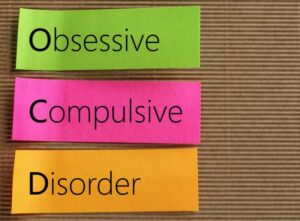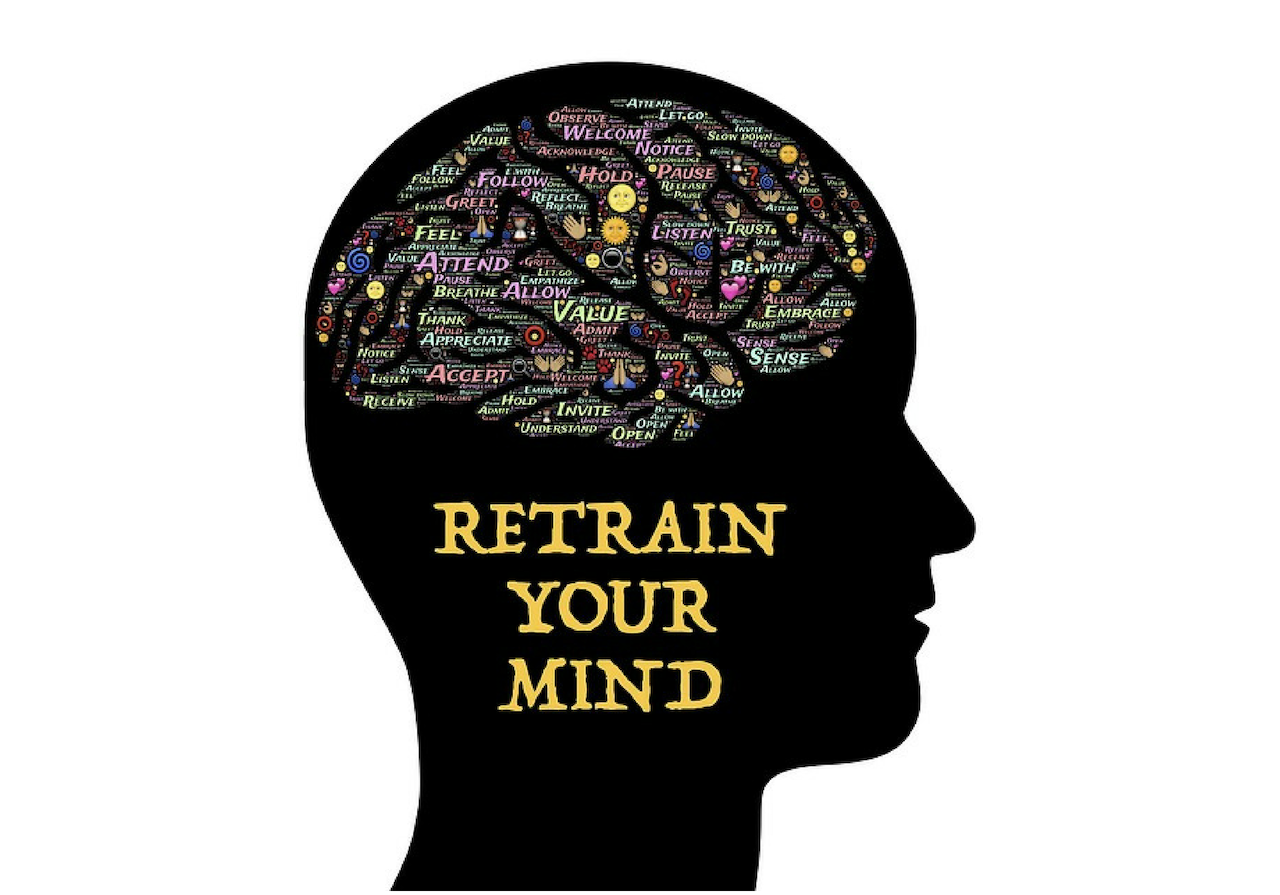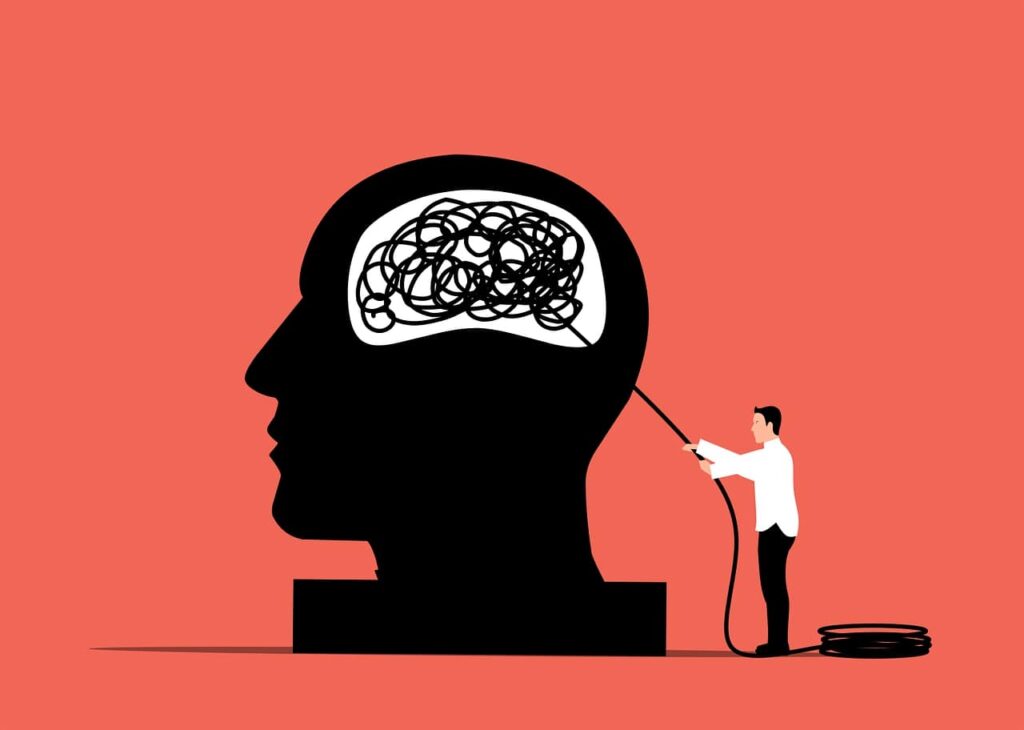Contents
- 1 What is OCD?
- 2 What is MBCT?
- 3 Concept Behind MCBT For OCD
- 4 How Does MBCT Work?
- 5 Techniques of MBCT For OCD
- 6 What are the Benefits of MBCT?
- 7 How to Find an MBCT For OCD Practitioner?
- 8 Tips To Keep In Mind While Taking MCBT For OCD
- 9 Disadvantages of MCBT For OCD
- 10 Alternatives of MCBT For OCD
- 11 Conclusion
What is OCD?
 There are many different types of OCD, but all of them involve having unwanted, intrusive thoughts (obsessions) that lead to repetitive behaviors (compulsions). People with OCD often realize that their thoughts and behaviors are irrational, but they feel powerless to stop them.
There are many different types of OCD, but all of them involve having unwanted, intrusive thoughts (obsessions) that lead to repetitive behaviors (compulsions). People with OCD often realize that their thoughts and behaviors are irrational, but they feel powerless to stop them.
OCD can be a very disabling condition, making it difficult for people to work, go to school, or even leave the house. But there is hope—many people with OCD can get better with treatment. One of the most effective treatments for OCD is called mindfulness-based cognitive therapy (MBCT).
What is MBCT?
 MBCT for OCD is a form of mindfulness-based cognitive therapy that has been specifically designed to help people suffering from obsessive-compulsive disorder. The aim of MBCT for OCD is to help people learn to control their intrusive thoughts and compulsive behaviors, and live a more fulfilling life.
MBCT for OCD is a form of mindfulness-based cognitive therapy that has been specifically designed to help people suffering from obsessive-compulsive disorder. The aim of MBCT for OCD is to help people learn to control their intrusive thoughts and compulsive behaviors, and live a more fulfilling life.
MBCT for OCD is an effective treatment for many people suffering from OCD. It is a relatively new form of treatment, but it has already helped many people to overcome their obsessions and compulsions. If you are suffering from OCD, then MBCT for OCD may be able to help you too.
Concept Behind MCBT For OCD

MBCT for OCD is a cognitive behavioral therapy approach that helps reduce symptoms of OCD. The core principle behind MBCT for OCD is that our thoughts and beliefs about ourselves and the world around us can contribute to our experiences of anxiety and distress.
MBCT for OCD helps us to become more aware of our thoughts and beliefs, and how they might be affecting our emotions and behavior. Through this process, we can learn to respond to our thoughts and beliefs in a more mindful and balanced way.
How Does MBCT Work?
 MBCT for OCD is a form of cognitive therapy that aims to help people with OCD manage their condition by changing the way they think about and respond to their obsessions and compulsions. The therapy is based on the principle that our thoughts and feelings can influence our behaviors, so by changing our thinking patterns, we can change our behaviors.
MBCT for OCD is a form of cognitive therapy that aims to help people with OCD manage their condition by changing the way they think about and respond to their obsessions and compulsions. The therapy is based on the principle that our thoughts and feelings can influence our behaviors, so by changing our thinking patterns, we can change our behaviors.
MBCT for OCD involves learning to recognize and challenge the negative and distorted thoughts that contribute to OCD. For example, someone with OCD might have the thought “I must always wash my hands or I will get sick”. This thought is then followed by the compulsion to wash hands repeatedly. In MBCT, the therapist would help the person to recognize that this thought is distorted and not based on reality. They would then learn how to challenge and reframe the thought in a more realistic way e.g. “It is unlikely that I will get sick if I don’t wash my hands”. This process can help to reduce anxiety and break the cycle of OCD.
MBCT for OCD also involves learning mindfulness skills. Mindfulness is a way of paying attention to our thoughts, feelings, and sensations in the present moment without judgment. Developing this ability can help us to become aware of the unnecessary anxiety and stress that we create for ourselves. In MBCT for OCD, the person would learn mindfulness skills to help reduce urges and compulsions. By becoming more aware of thoughts and feelings, they become less out of control and therefore less distressing. As a result, the person may not need to rely on compulsions such as washing hands so frequently or at all.
Techniques of MBCT For OCD

Many techniques can be used in MBCT for OCD. One common technique is breathing exercises. This can help to calm the mind and body, and it can also be used to focus on the present moment. It is important to find a breathing exercise that works for you and to practice it regularly.
Another common technique is mindfulness meditation. This involves focusing on the present moment and letting go of thoughts about the past or future. This can be a helpful way to reduce anxiety and obsessive thoughts.
Many other techniques can be used in MBCT for OCD. These include relaxation techniques, cognitive restructuring, and exposure and response prevention (ERP). Each person will respond differently to different techniques, so it is important to find what works best for you.
What are the Benefits of MBCT?

MBCT is a type of mindfulness-based cognitive therapy that is effective in treating several mental disorders. Here are five of the benefits of MBCT that may prove to be particularly beneficial for you.
Helps To Reduce Stress and Anxiety
One of the main benefits of MBCT is that it can help reduce stress and anxiety. By teaching participants how to focus on their thoughts and feelings, MBCT can help them learn how to manage their emotions better. In addition, MBCT helps reduce symptoms of depression and PTSD.
Improves Your Mood and Your Outlook on Life
MBCT has been shown to improve mood and outlook on life in several ways. First, it can help participants learn how to manage their emotions better, which can lead to an improvement in mood. Additionally, MBCT has been shown to improve well-being overall by helping people learn how to cope with difficult situations and emotions more effectively. One study showed that people who completed MBCT reported lower levels of stress and improved mental health than those who did not participate in the therapy.
Helps To Learn To Deal With Difficult Situations
One of the key benefits of MBCT is that it teaches people how to deal with difficult situations more effectively. By focusing on their thoughts and feelings, MBCT can help participants learn how to manage difficult emotions and reactions. One study showed that people who completed MBCT reported reduced levels of stress and improved mental health than those who did not participate in the therapy.
Helps in reducing relapse rates
One of the key benefits of MBCT is that it is a relatively safe treatment option that is unlikely to lead to further episodes of depression or anxiety. In addition, MBCT helps reduce relapse rates, which means that people are less likely to experience a return of symptoms after completing the therapy.
Improves Your Relationships
One of the key benefits of MBCT is that it can improve your relationships. By helping people learn how to cope better with difficult emotions and interactions, MBCT can help strengthen relationships overall. One study showed that people who completed MBCT reported increased social connectedness and satisfaction with their relationships.
How to Find an MBCT For OCD Practitioner?

Finding an MBCT practitioner can be a daunting task, but with a little research, it’s easy to locate the right therapist. The following are five tips to help you find an MBCT practitioner:
1. Ask your friends and family members if they know of any therapists who offer MBCT. Many people know of practitioners who offer MBCT, and word of mouth is often the best way to find a good therapist.
2. Look for online directories that list MBCT therapists in your area. These directories can be found by searching for “MBCT therapists” or “mind-body therapies.”
3. Check with your health insurance company to see if they cover MBCT therapy. Many health insurance companies offer coverage for mental health treatments, including MBCT.
4. Ask your local hospital if they have any referrals for MBCT therapists. Hospitals often have a list of specialists and providers who they work with regularly. This can include mental health professionals.
5. Meet with some potential MBCT practitioners in person and ask them about their experience offering MBCT therapy. It’s important to feel confident that the therapist you choose is qualified to provide this therapy.
Tips To Keep In Mind While Taking MCBT For OCD

These are some of the tips that one should keep in mind while taking MCBT for OCD:
1. Remember that you are in control: It can be easy to forget this when you are in the midst of an OCD episode. But it’s important to remember that you are ultimately in control of your thoughts and actions.
2. Don’t avoid things that trigger your OCD: This may seem counter-intuitive, but avoiding things that trigger your OCD will only reinforce the fear and anxiety associated with them. Instead, face your fears head-on and practice exposure and response prevention (ERP) therapy.
3. Be patient: Like with any type of therapy, results from MBCT for OCD won’t happen overnight. It takes time and practice to see results. Be patient and don’t get discouraged if you don’t see immediate improvement.
4. Stay mindful: One of the key components of MBCT for OCD is mindfulness. This means being present in the moment and accepting things as they are, without judgment. This can be a difficult task, but it’s important to focus on staying mindful throughout the day, not just during meditation or other formal practices.
5. Get involved: Many people who struggle with OCD are naturally shy or reserved when it comes to social situations. But overcoming this can be a big step toward more stable emotional and physical health. You can find support online through sites that offer resources for those living with all forms of obsessive-compulsive disorder (OCD).
Disadvantages of MCBT For OCD
There are a few disadvantages to MBCT for OCD.
- First, it is not always effective. Some people find that their OCD symptoms return after some time.
- Second, it can be expensive. Many insurance companies do not cover the cost of MBCT treatment.
- Third, it can be difficult to find a qualified MBCT therapist. Not all therapists are trained in this specific type of therapy.
- The intensive and personal nature of the therapy may be difficult for some people to tolerate.
- MBCT is not a cure-all.
- Finally, MBCT may not be right for everyone who tries it, and there may be other treatments that are more suited to individual needs.
Alternatives of MCBT For OCD

There are many different types of therapy for OCD, and no one type is right for everyone. Some people may respond well to traditional cognitive behavioral therapy (CBT), while others may find that alternative therapies are a better fit. If you’re looking for an alternative to CBT for OCD, there are several options to consider.
Another option is exposure and response prevention (ERP). This type of therapy involves gradually exposing yourself to your feared thoughts, objects, or situations. You then practice resisting the urge to engage in your usual compulsions. ERP can be difficult and uncomfortable, but it is an effective treatment for OCD.
One possible alternative is medication-based therapy. This type of therapy uses medications to help treat depression. Some people find that medication-based therapy is more effective than MBCT, and others find that it’s less expensive.
Another alternative to MBCT is talk therapy. Talk therapy is a type of mental health treatment that helps people talk about their problems and work through them. It can be helpful for people who don’t feel comfortable with group sessions or who want to explore their problems in more depth.
Some people find that self-help books or podcasts are helpful when it comes to dealing with depression. Self-help books and podcasts can provide information and support, as well as tips on how to deal with specific issues related to depression.
If you’re looking for an alternative to traditional OCD treatments, there are several options to consider. Talk to your doctor or mental health professional about which option might be right for you.
Conclusion
MBCT is a powerful tool that can help people to manage their anxiety and depression. It works by helping people to become more aware of their thoughts and feelings and to understand how these can affect their moods. MBCT can also help people to develop healthier ways of coping with stress and to make positive changes in their lives. If you are struggling with anxiety or depression, MBCT might be worth considering as an option for treatment.
Hope this article was of help to you! If you are suffering from OCD, you may seek help from Therapy Mantra. We have a team of highly trained and experienced therapists who can provide you with the tools and skills necessary for overcoming OCD. Contact us today to schedule an online therapy or download our free OCD treatment app on Android or iOS for more information.


